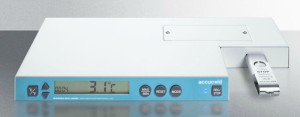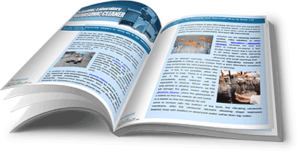How to Improve Vaccine Storage Temperature Monitoring

Vaccine storage temperature monitoring and reporting are critical requirements for healthcare facilities participating in the Vaccines for Children (VFC) program. Procedures are clearly spelled out in the CDC’s Vaccine Storage and Handling Toolkit.
To comply with these procedures vaccine refrigerators and freezers must be equipped with temperature alarming and recording devices. A temperature logger kit now available from Tovatech can be installed on vaccine storage units that otherwise meet CDC regulations but lack temperature logging and alarming capability.
NIST-Certified Temperature Logger
Supplied with a 5 volt DC power adapter, the compact .75” x 9.25” x 5.5” (HWD) NIST-calibrated DL2 temperature logger kit stores data on a 4GB USB flash drive for retrieval and archiving to a PC or Mac. It is equipped with a backup rechargeable lithium-ion battery that operates the logger for up to 20 hours in the event of a power failure.
Temperature accuracy is 0.5⁰C over a temperature range of -10 to +10⁰C, which meets the recommended storage range for refrigerated vaccines of 2 to 10⁰ C. The temperature sensor is enclosed in a glycol-filled bottle so it is not immediately affected by internal temperature fluctuations caused by opening the refrigerator door. Instead it accurately reports vaccine temperature.
Other valuable features include:
- User-set logging intervals
- Easily read LCD shows current temperature in ⁰C or ⁰F as well as high/low temperatures
- An audible alarm and flashing indicator light alert personnel to temperature excursions beyond the user-set range
- Easily installed on virtually all vaccine refrigerator models including undercounter units
Reduce the Risk of Vaccine Loss
Temperature data loggers such as the NIST-calibrated DL2 kit are important components to vaccine storage and handling programs essential for all healthcare facilities. The financial cost of replacing vaccines lost to improper storage procedures anywhere along the vital cold chain is substantial – amounting to thousands of dollars annually. Added to this is the inconvenience suffered by patients as well as those who administer vaccines, who must do the process all over again.
For a quick overview on steps to take to reduce the risk of vaccine lost please download a copy of our white paper Ten Things to Know about Vaccine Refrigerators and Freezers. A more in-depth study of proper procedures is found in the CDC vaccine storage toolkit mentioned at the beginning of this post.
We invite you to contact our scientists for answers to your questions on vaccine storage and monitoring procedures and for advice on selecting the correct vaccine refrigerator or freezer that best meets your healthcare organization’s requirements.
